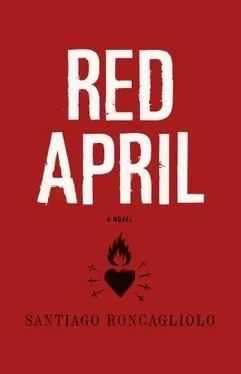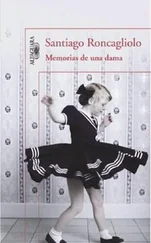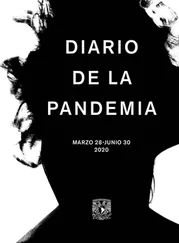Chacaltana took his leave of the commander with a military salute. He thought about embracing him but did not dare. In any case, he would have liked to. It would have been like embracing a father. Commander Carrión had been anything but a good man, but at least, perhaps, his final gestures had redeemed him through fear. Perhaps that was the only way to really be redeemed.
Twenty minutes later, he went to police headquarters with the signed order. The usual sergeant was at the door.
“Good afternoon, Señor Prosecutor. Unfortunately, Captain Pacheco has told me to say that for the moment he isn't in, but that if … Señor Prosecutor. Señor Prosecutor!”
Chacaltana went directly to Pacheco's office and opened the door. Inside were the captain and Judge Briceño. The sergeant at the door pulled at the prosecutor's arm as he spoke to the captain.
“Excuse me, Señor! I informed the prosecutor that you were absent, but …”
“Shut up, you imbecile!” replied Pacheco. “And get out. Come in, Señor Prosecutor. Since you have lost your manners, at least have a seat.”
Without sitting down, the prosecutor placed the paper on his desk.
“I have an order from Commander Carrión to double security, effective immediately.”
“From whom?” asked the captain, looking as if he did not recognize the name.
“Commander Carrión, who has made clear to me his concern regarding …”
“I'm afraid he hasn't heard what happened,” intervened Judge Briceño. The captain smiled. “It's understandable. It's clear you're too distracted by your own matters. The commander is no longer in command here.”
They seemed pleased by the news. Perhaps they had just been celebrating it. The prosecutor replied:
“His retirement is not yet in effect, Señor Judge.”
“When people die,” answered the judge, “one doesn't wait for their death to be in effect. They just die, Prosecutor Chacaltana.”
Chacaltana looked from one to the other. Then he said:
“The order is in response to the need for extreme security measures …”
“In the absence of the commander, I decide what security measures are needed,” said Pacheco. “And I'm not going to deprive my men of their time off without a good reason. Unless you have a judicial order. Why don't you ask Judge Briceño for one? Ah, I forgot, it's a holiday, the judge isn't working!” He became serious. “Neither are we.”
“You do not understand. There is a killer on the loose!”
“A killer?” asked the judge. “We don't know about any killer. There's no record of any complaint of murder in the judicial district. I don't know if you've been whispering about something with your commander, but we don't know anything. If you want institutions to function, you have to transmit your information to them, Señor Chacaltana. If not, what can we do?”
Chacaltana hesitated. Then he recovered his confidence:
“You two will be complicit if you do not carry out the order.”
“Excuse me,” a falsely offended Briceño replied. “Are you accusing us of something? If that is so, say it clearly, please. You could be guilty of contempt or insubordination. What are you calling us?”
He made a gesture of taking notes as he waited for Chacaltana's response. The police captain continued smiling, with a smile like that of the president looking at him from his photograph on the wall. The prosecutor thought they were in this office together, law and order. And he understood that it made no sense to continue to insist.
“Nothing, Señor Judge. This … must have been a misunderstanding.”
“Of course, a misunderstanding,” Captain Pacheco confirmed.
The prosecutor noticed that both were looking in his eyes, penetratingly, as if trying to find out something else, something lodged in the interior of his optic nerve, perhaps. Briceño said:
“Now that things are clearer, you ought to sit down. Perhaps we're still in time to chat about the future. The captain and I in fact were coordinating plans with regard to the absence of Commander Carrión. Perhaps you should join our working group.”
A month earlier, perhaps, the invitation would have flattered him. He would have visited Edith to celebrate his entrance into the circles of Ayacuchan power. He would have enthusiastically participated in the meetings of the working group, turning in reports and suggesting reforms to streamline administrative processes. But the offer was late, as if it had come to him from another time in his life. He realized that he felt like a mature man now, perhaps for the first time in his life, an adult who would make decisions consulting only with himself. He looked at both functionaries and could not contain a small smile that barely played at the corners of his mouth, a smile of superiority, of self-sufficiency.
“I see that you like the idea,” said Briceño. On the other side of the desk, Captain Pacheco seemed to limit his function to smiling and celebrating each of the judge's ingenious, arrogant phrases. The prosecutor first shook his head while continuing to smile. Then he pronounced his decision:
“No, no … I think it would be better if I did not.”
To the surprise of the other two, he walked to the exit and left the office, slamming the door behind him. He imagined the judge and the captain laughing inside, celebrating death with Holy Week, preparing to drain the city's blood like two vampires. Carrión the cat was out of combat. The mice were beginning to play even before he left the city.
It was already dark outside. There were no processions that day, and the tourists filled the streets in a disorderly way, not going anywhere in particular. Drunks were piling up at the corners of the Plaza Mayor. Chacaltana could not watch over the whole city by himself. He could not have a thousand eyes and a thousand ears; he was not even very good at writing a report. He realized he had not eaten lunch. He needed to sleep. He decided not to look for anyone, not to see anyone, to go directly to his house. He returned home, greeted his mother, fixed some chicken soup, and went to bed. He was sad and tired, tired of not being able to do anything. He thought that tonight there would be another dead body and he was the only one who knew it. Then he became aware that it might be his turn to be the victim. With the tranquility of someone making preparations for supper, he got up and locked the door and the windows of his house. He even put a padlock on his mother's window, begging Señora Saldívar de Chacaltana's pardon for the inconvenience and assuring her it was a temporary measure. He pushed the sofa and an armchair against the door to the house, and the bureau and armoires against the windows. He went back to bed, making certain he had his weapon close by. As he tried to fall asleep, he thought about Edith. Better not to look for her. He would only put her in danger. Everyone I talk to dies, he thought. It occurred to him to masturbate with the memory of her smooth breasts that tasted of trout. He did not have time for that. In spite of his fear, he felt his eyelids closing.
At two in the morning, he was assailed by a new nightmare. It had to do with fire and a church. Blows on a bleeding body in a temple. He saw a white man with a Limenian accent hitting a woman. He saw her blood staining the baptismal font, the white cloths of the altar, the chalice, the chasuble. And then the explosion, the fire devouring both of them. But the man did not stop hitting the woman, kicking her on the ground, shouting at her. He tried to get closer to defend her and went through the flames. The shouts seemed familiar. The man's voice especially, he knew it in some corner of his memory that he had allowed to be consumed by flames. He was closer and closer to the aggressor. In the dream he did not have the weapon but was sure he could bring down the savage with his own hands. Now the blood did not seem to stain the church but to flood it. The pool was growing beneath his feet, it reached his knees, his waist, and interfered with his movement toward the violent man, who had not stopped beating the woman as he began to drown in the red liquid. Once at his side, he took the man by the shoulder and wheeled him around to face him. It was like turning around a mirror. It was his own face held up by the aggressor's shoulders.
Читать дальше












